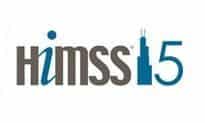US calls out health information blockers
- 13 April 2015

Health IT suppliers have been called out for blocking information flows to promote their narrow economic interests ahead of the biggest US health IT event of the year.
A new report from the US' Office of the National Coordinator for Health Information Technology was released on the eve of the Healthcare Information and Management Systems Society 2015 annual conference in Chicago.
The report sets its sights on suppliers who make it difficult or prohibitively expensive for their customers to share information across the healthcare system.
Information blocking, by a “few bad actors”, has become a key issue in the US healthcare system, as regulators and policy makers seek to remove barriers to a fully interoperable health care system.
In a new report to Congress, the government agency responsible for the ‘meaningful use’ health IT investment programme, says a number of suppliers and healthcare providers are blocking the flow of health information.
The report recommends steps that would increase transparency and surveillance in information blocking and new certification requirements that require information sharing for suppliers to be eligible for meaningful use funds.
Meaningful use has three main stages. Stage one is largely about adoption of electronic health records. Stage two, the current focus, is mostly about interoperability and stage three is about improved patient outcomes.
The new report follows the publication in October of a ten-year vision to achieve a fully interoperable health IT infrastructure.
It says the ONC has received a growing number of reports about information blocking, and become “increasingly concerned about these practices, which are fundamentally incompatible with efforts to transform the nation’s health system".
“Having spent more than $28 billion in the past five years to drive IT adoption – and, ultimately, a connected and interoperable health system – a few bad actors are impeding more fluid data exchange,” the report states
"While many stakeholders are committed to achieving this vision, current economic and market conditions create business incentives for some persons and entities to exercise control over electronic health information in ways that unreasonably limit its availability and use.
"The full extent of the information blocking problem is difficult to assess, primarily because health IT developers impose contractual restrictions that prohibit customers from reporting or even discussing costs, restrictions and other relevant details."
Concerns about blocking are likely to become more pronounced as both expectations and the technological capabilities for exchanging electronic health information develop and mature.
No specific health IT suppliers are named in the report, but the primary focus of complaints is thought to be a handful of the leading EHR suppliers.
"Many of these complaints allege that developers charge fees that make it cost-prohibitive for most customers to send, receive or export electronic health information stored in EHRs, or to establish interfaces that enable such information to be exchanged with other providers, persons, or entities," the report says.
"Some EHR developers allegedly charge a substantial per-transaction fee each time a user sends, receives, or searches for (or 'queries') a patient’s electronic health information. EHR developers may also charge comparatively high prices to establish certain common types of interfaces – such as connections to local labs and hospitals.
"Many providers also complain about the costs of extracting data from their EHR systems for their own use or to move to a different EHR technology," according to the report.
A number of healthcare providers, are also said to be guilty of using information blocking as a tactic to “control referrals and enhance their market dominance".
Providers typically cite privacy and security requirements that prohibit data sharing.
"But it has been reported to ONC that privacy and security laws are cited in circumstances in which they do not in fact impose restrictions," it says.
A series of steps are recommended to improve surveillance and transparency, but these steps, though important, will not be sufficient alone.
"Most information blocking is beyond the current reach of ONC or any other federal agency to effectively detect, investigate, and address," the report says.
“To address information blocking in a comprehensive manner will require overcoming significant gaps in current knowledge, programs, and authorities".
The result is that some health IT suppliers have been put on notice by the ONC and the debate on how to curb restrictive practices on data sharing has moved to centre stage.




